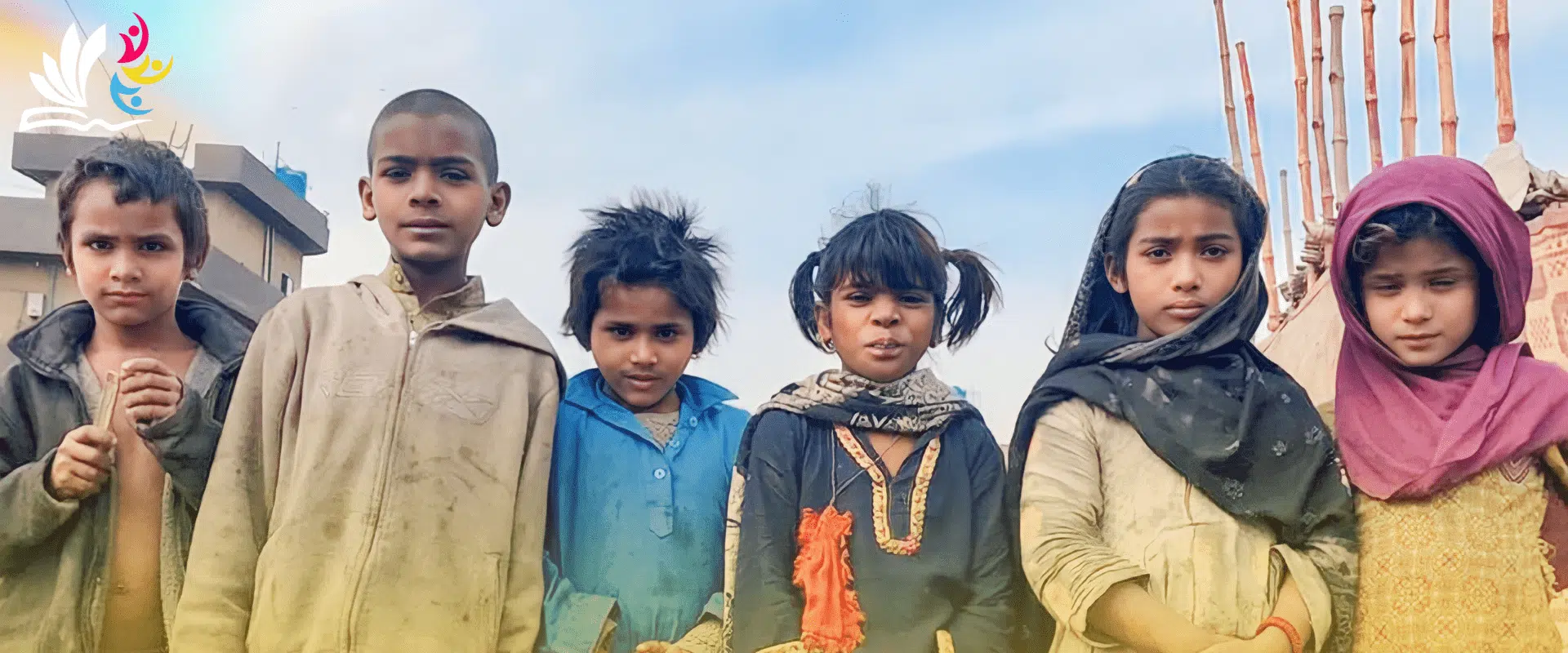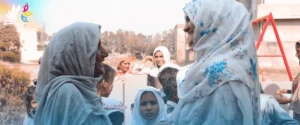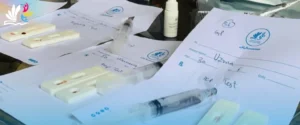
Empowering Slums: The Fight Against Urban Health Crisis and Inadequate Services:
Are you aware of the severe health challenges faced by individuals living in slums? In densely populated urban areas characterized by poverty and overcrowding, slum dwellers confront numerous obstacles to maintaining good health. This article will delve into the detrimental effects of inadequate access to medical care, clean water, and sanitation facilities on the well-being of those in slums.
This article will discuss the repercussions of these challenges and shed light on the urgent need for comprehensive solutions. SKZ has worked for slum dwellers for 7 years, and we have closely observed their problems. Join us as we uncover the health risks faced by slum populations and the alarming healthcare disparities that persist within these communities.
Understanding Health Challenges in Slums:
The inhabitants of these marginalized communities endure significant health disparities, struggling to access vital healthcare services, clean water, and adequate sanitation facilities. Let’s discuss them all, one by one:
Limited Access to Vital Healthcare Services:
Slum communities often lack nearby healthcare facilities or face financial barriers that prevent them from seeking necessary medical care. Our medical camps have seen them suffering from chronic diseases that have not been diagnosed for years. Sometimes Hepatitis or other chronic diseases are at their last stages, and they have no idea about it.
Lack of Clean Water:
Access to clean water is necessary for maintaining good health, but slum dwellers often struggle to obtain it. Contaminated water sources, such as shared wells or rivers polluted with waste, increase the risk of waterborne diseases. Lack of proper water treatment and purification systems exacerbates the problem, leaving slum residents vulnerable to illnesses like diarrhea, cholera, and typhoid.
Inadequate Sanitation Facilities:
Slum areas typically lack proper sanitation facilities, including toilets and waste management systems. Open defecation is prevalent, leading to unsanitary conditions contaminating the environment and spreading diseases. Poor waste management practices further worsen the situation, posing health hazards and increasing the risk of infections and outbreaks.
These challenges have severe consequences on the health and well-being of slum dwellers.
Inadequate Access to Medical Care in Slums
Access to proper medical care is a fundamental right, yet slum dwellers face numerous barriers to obtaining essential healthcare services. Financial constraints, lack of healthcare infrastructure, and distance to healthcare facilities contribute to limited access.
1. Financial Constraints:
Many slum dwellers live in poverty and struggle to afford healthcare services. Medical consultations, medications, diagnostic tests, and hospitalizations can be prohibitive for individuals and families with limited financial resources. As a result, they may delay or forgo seeking necessary medical care, leading to worsening health conditions.
2. Lack of Healthcare Infrastructure:
Slum areas often lack proper healthcare infrastructure, including clinics, hospitals, and healthcare centers. The existing facilities need improved capacity, staffing, and equipment. This scarcity of healthcare resources leaves slum dwellers with limited options for accessing quality medical care when needed.
3. Distance to Healthcare Facilities:
Slum communities are frequently located far from healthcare facilities. This geographical distance poses a significant challenge for slum dwellers, particularly those who rely on public transportation or have limited mobility. The time and cost of traveling to healthcare facilities can be substantial, deterring individuals from seeking timely medical attention.
Health Risks Faced by Slum Dwellers
The lack of access to medical care exacerbates the health risks faced by those living in slums. Chronic diseases, infectious illnesses, malnutrition, and maternal and child health issues are prevalent in these communities.
Here are some of the key health risks faced by slum dwellers:
1. Infectious Diseases:
Slums often lack proper sanitation infrastructure, contaminating water sources and inadequate waste management. This contaminated water is the source of diarrhea, cholera, and typhoid fever. Additionally, cramped living conditions facilitate the spread of respiratory infections, such as tuberculosis, and vector-borne diseases like dengue and malaria.
2. Malnutrition:
Slum dwellers frequently experience food insecurity and limited access to nutritious food. The lack of adequate income and resources makes it challenging to maintain a balanced diet, leading to malnutrition and associated health problems.
3. Maternal and Child Health Issues:
Slum communities often face inadequate healthcare during pregnancy and childbirth. Limited access to prenatal care, skilled birth attendants, and emergency obstetric services contributes to higher maternal and infant mortality rates. Furthermore, poor sanitation and hygiene practices increase the risk of infections and complications for mothers and newborns.
4. Chronic Diseases:
Slum dwellers are affected by infectious diseases and face a growing burden of non-communicable diseases (NCDs), such as diabetes, hypertension, and cardiovascular diseases. Limited access to healthcare services, unhealthy living conditions, and lifestyle factors like poor nutrition and lack of physical activity contribute to the prevalence of these chronic diseases within slum populations.
5. Mental Health Challenges:
Living in slums can harm mental health. Poverty, violence, social isolation, and limited access to mental healthcare services contribute to high depression, anxiety, and other mental health disorders among slum dwellers.
Empowering Slum Communities through Education, Healthcare, and Charitable Initiatives:
1. Education:
We provide free education for slum students. We are equipping students with the skills and knowledge to break the cycle of poverty. We empower individuals to improve prospects and make informed decisions about health and well-being. Our team arranges Counseling women to educate them about their reproductive health issues.
2. Healthcare:
We are doing charity work on health care, from Conducting medical camps for slum communities, Volunteering healthcare professionals to provide essential medical care, offering screenings, vaccinations, and basic healthcare services, ensuring necessary attention and care for individuals in slums, counseling women and providing support on health-related issues to Empowering women to make informed choices for themselves and their families.
3. Charitable Initiatives:
Our charitable initiatives include Providing free meals to children in SKZ Model School, addressing food insecurity and promoting healthier living conditions, Recognizing the importance of nutrition for overall health and development, tackling immediate health concerns, and laying the foundation for improved well-being. SKZ has constructed clean washrooms for the slum community. SKZ has been providing the community with clean water to prevent the disease due to drinking dirty water.
4. Breaking Barriers and Impact:
We are breaking barriers by using a Comprehensive approach to address barriers to access care and clean-living conditions, working towards a healthier and more empowered slum community, and creating a significant impact on the hidden health crisis in slums.
The health challenges endured by people living in slums, including inadequate access to medical care, clean water, and sanitation facilities, cannot be ignored. Urgent action is needed to address these issues and improve the well-being of slum dwellers. By advocating for equitable healthcare, clean water initiatives, and enhanced sanitation facilities, we can make significant strides in alleviating the health disparities that plague these marginalized communities. Let us make this world where everyone can access health care, nutritious food, and clean water.






No comment yet, add your voice below!